By: ankita kulkarni
May 8 2023
How misinformation has made inroads in Karnataka elections
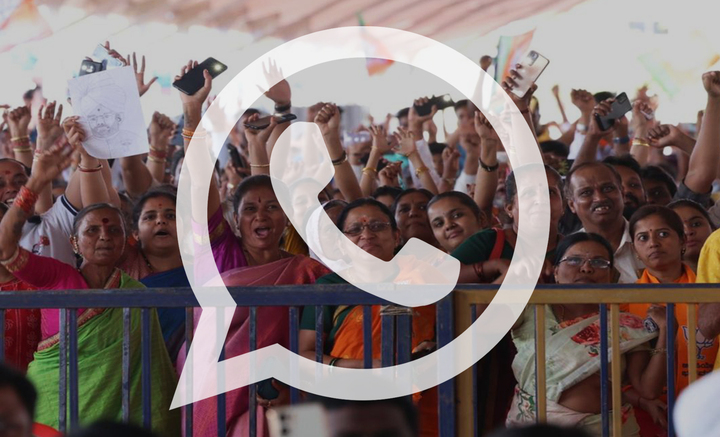
Manjula, a Bengaluru-based campaigner for the Bharatiya Janata Party (BJP), is in charge of a group of local women who are participating in garnering support for the party in the upcoming assembly elections in Karnataka.
During one of her meetings with the group, she showed them a "BBC survey," which predicted that the BJP would win big (130 to 142 of the 224 assembly seats) in the elections, scheduled for May 10. She briefly believed it to be true.
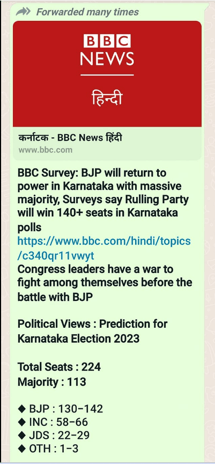
Screenshot of alleged BBC survey
But neither is the survey recent nor did the BBC conduct it. Yet, there are thousands like Manjula who trust such messages and forward them.
Similarly, Shivraju who works for the Congress told Logically Facts about a video of Youth Congress President Srinivas BV, which his parents received on WhatsApp. The video showed the leader calling Union Minister of Women and Child Development Minister Smriti Irani a "witch."
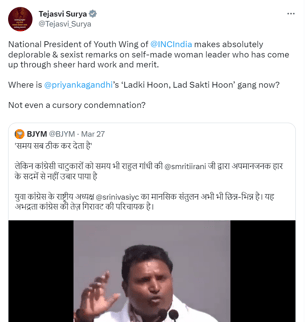
Screenshot of BJP MP Tejaswi Surya’s false claim
Even in this case, the video was clipped to twist what Srinivas said. In reality, he was alluding to inflation as a 'witch' and not Irani.
Since 2018, social media war rooms of the BJP and the opposition parties – Congress and Janata Dal (Secular) (JDS) – have aggressively used WhatsApp to reach out to voters at panchayat (village), taluk (subdistrict), and district levels.
These elections are no different. They are not just being fought through rallies and roadshows, but also on social media platforms where old pictures, misleading videos, and narratives are being shared in abundance.
Logically Facts analyzed the overarching themes that are being used to mislead the electorate, and how parties are benefiting from it.
Major narratives this election season
1) Old content resurfaces to target political parties and their leaders
A video, which has been in circulation since 2021, resurfaced this year to claim the BJP was giving money to voters to cast the ballot in their favor. But we found that the video was old and was possibly from Telangana.
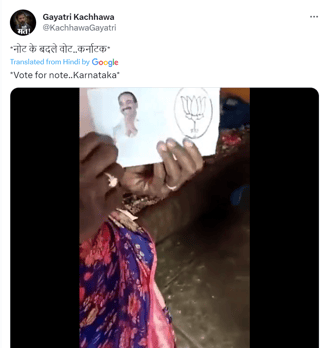
Another video, shared by the Karnataka Congress' official handle, showed a mob attacking a BJP campaign vehicle. This was used to prove that there is simmering 'anger' against the current dispensation. However, this video turned out to be old.
An older clip of Congress leader DK Shivkumar, allegedly showing him in an inebriated condition recently went viral. The video, however, was not linked to the elections.
2) Altered pre-poll results
Whether it's done to boost the morale of the cadre or to mislead the voter, such surveys/exit polls have long been part of building narratives. For example: a screenshot of an NDTV poll of polls predicted a massive win for the Congress in Karnataka, while an ABP-CVoter pre-poll survey was altered to claim that it's the BJP that will make a comeback in the state.
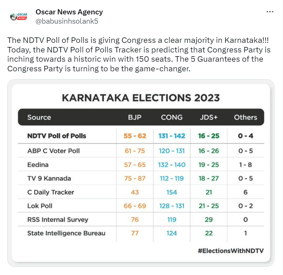
Screenshot of a fabricated NDTV Polls of Polls
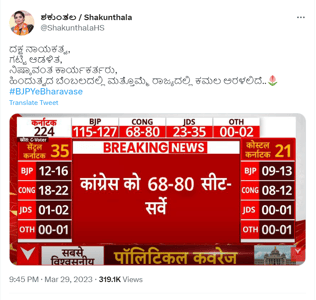
Screenshot of alleged poll by ABP-CVoter
Similarly, a clip of an “internal RSS survey” was shared to claim that the Congress’ win in the state. But alas, this, too, turned out to be fake.
3) Retelling history to suit politics?
A major point of contention between the BJP and the opposition was related to the BJP’s claim that Tipu Sultan, the 18th-century ruler of the erstwhile Mysuru Kingdom, was killed by two Vokkaliga chieftains, Uri and Nanje Gowda. The controversy blew up in March, when the BJP erected a ceremonial banner in Mandya to welcome Prime Minister Narendra Modi.
The move was criticized by the opposition leaders blaming BJP for creating these two fictional chieftains, an argument supported by historians. Moreover, historical evidence shows that Tipu Sultan was killed by the British.
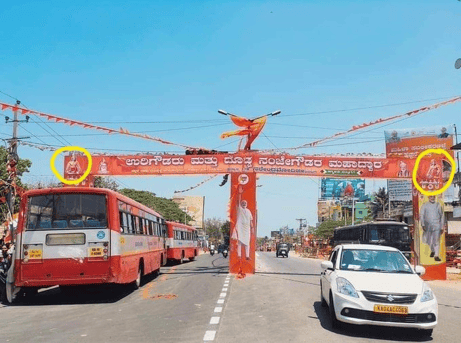
Source: Mohammed Zubair/Photo of a banner showing Uri and Nanje Gowda
Who benefits?
While some misinformation might seem inconsequential at face value, studies show that such mis/disinformation can help reinforce the existing biases that people have. It might not change an individual’s political opinion.
The BJP aggressively targeting Congress leader Rahul Gandhi calling him “pappu” which involves mocking the leader, enables voters to stick to their existing confirmation biases.
Political scientist Dr. Sandeep Shastri told Logically Facts, "mis and disinformation are not changing the attitudes of voters; instead, are reinforcing their already held attitudes."
Quoting the example of Congress party accusing the BJP of corruption using the catchphrase “40 percent sarkara” or 40 percent government, Shashtri said, “none of the political parties are free from corruption. All are involved in spreading misinformation by criticizing the opponents, shying away from their own guilt. The BJP has also accused Congress of 85 percent corruption. Likewise, parties are involved in spreading misinformation which criticizes the rival parties."
JDS IT cell member Pratap Kanagal told Logically Facts that of the 224 Constituencies in the State, the party has created groups in 120 to 140 of them. He added that once the content is created in the central war room, it is disseminated to other groups.
A BJP IT cell member, who didn’t wish to be identified, also spoke about a similar content creation process that effectively communicates the programs, achievements, and plans of the "double-engine government."
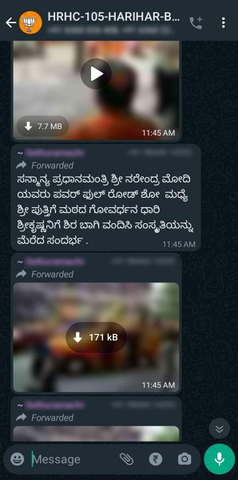
Screenshot of one such BJP group
According to him, the party maintains around 51,000 to 52,000 WhatsApp groups – double of what major parties claimed to have in 2018. Logically Facts cannot independently verify these numbers.
"Ultimately, when political parties seek votes, people tend to believe what they want to, and people are hopefully not foolish enough to vote for a particular party believing the misinformation narratives,” Shastri told Logically Facts.


